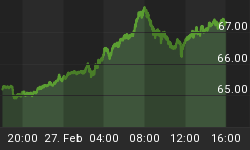Distribution of the much-anticipated second round of stimulus checks should begin before the end of year for a bit of potential holiday cheer, or at least to stem the tide of Christmas-present-related debt.
Under the new legislation, most adults would receive a direct payment of $600 as well as $600 per child, as part of a massive $2.3 trillion bill that includes $1.4 trillion for funding the government and $900 for coronavirus relief.
Passed by the House and Senate after months of delays, the bill is heading to President Donald Trump with a December 28th signing deadline. The president has indicated he would not oppose the bill.
The package includes a $1.4-trillion omnibus bill based on a 2019 spending deal. It also includes $1.4 billion for the Trump's administration southern border wall, $20 billion for the purchase of vaccines that makes the vaccine available at no charge, and financial aid for Jordan, Israel and Venezuela.
Aside from the $600 stimulus check, the new bill also provides federal jobless benefits of $300 per week through March next year. That’s half of the $600 per week unemployed workers received at the start of the pandemic through late July under the CARES Act.
The direct payments are roughly half the amount paid to adults through March’s CARE Act, which gave up to $1,200 for individuals and up to $2,400 for married couples.
The stimulus checks that the government started sending in April are long gone.
In late March, lawmakers passed the $2.2 trillion CARES Act, which included $290 billion in direct payments. The program allowed $1,200 for people making less than $75,000 and couples making less than $150,000. It also paid $500 per child.
According to new research by a team of economists from four American and European universities, the majority of the first stimulus check money was spent on rent and bill payments, followed by food and personal care items.
On the whole, households spent around one-quarter to one-third of their stimulus check money within 10 days of receipt.
Those in the lowest income group, who earned less than $1,000 per month, spent about 40% of the checks in the first 10 days. However, people with more than $3,000 in liquidity simply deposited them for a rainy day.
Even though the economy is much better than it was in April, the majority of Americans believe that the upcoming stimulus check will not be enough.
According to a new poll by YouGov, Americans think that the $600 figure is below what many feel they need.
Seven in 10 Americans describe stimulus checks that were ultimately included in the deal as “too little.” Some 5% said the amount was too high.
As for the plans on how to use it, a third of recipients said they would pay bills.
“Another 20 percent said they would put it in emergency savings with 17 percent said pay towards debts. 14 percent said it would be used for essentials such as food and hygiene products,” the report said.
Many Democratic lawmakers agree with Americans that the stimulus check is not enough and have voiced desire for more action to be taken under the Biden administration sometime next year.
Last May, the House Democrats introduced a new stimulus bill called the Health and Economic Recovery Omnibus Emergency Solutions Act, or the "HEROES Act". The House passed in May but was declared dead on arrival in the Senate.
This $3-trillion proposal far exceeded the cost of the $2.2 trillion CARES Act, and would have given $2,000 per month to people making under $120,000, plus $2,000 per child for up to three children.
By Fred Dunkley for Safehaven.com
More Top Reads From Safehaven.com:
















